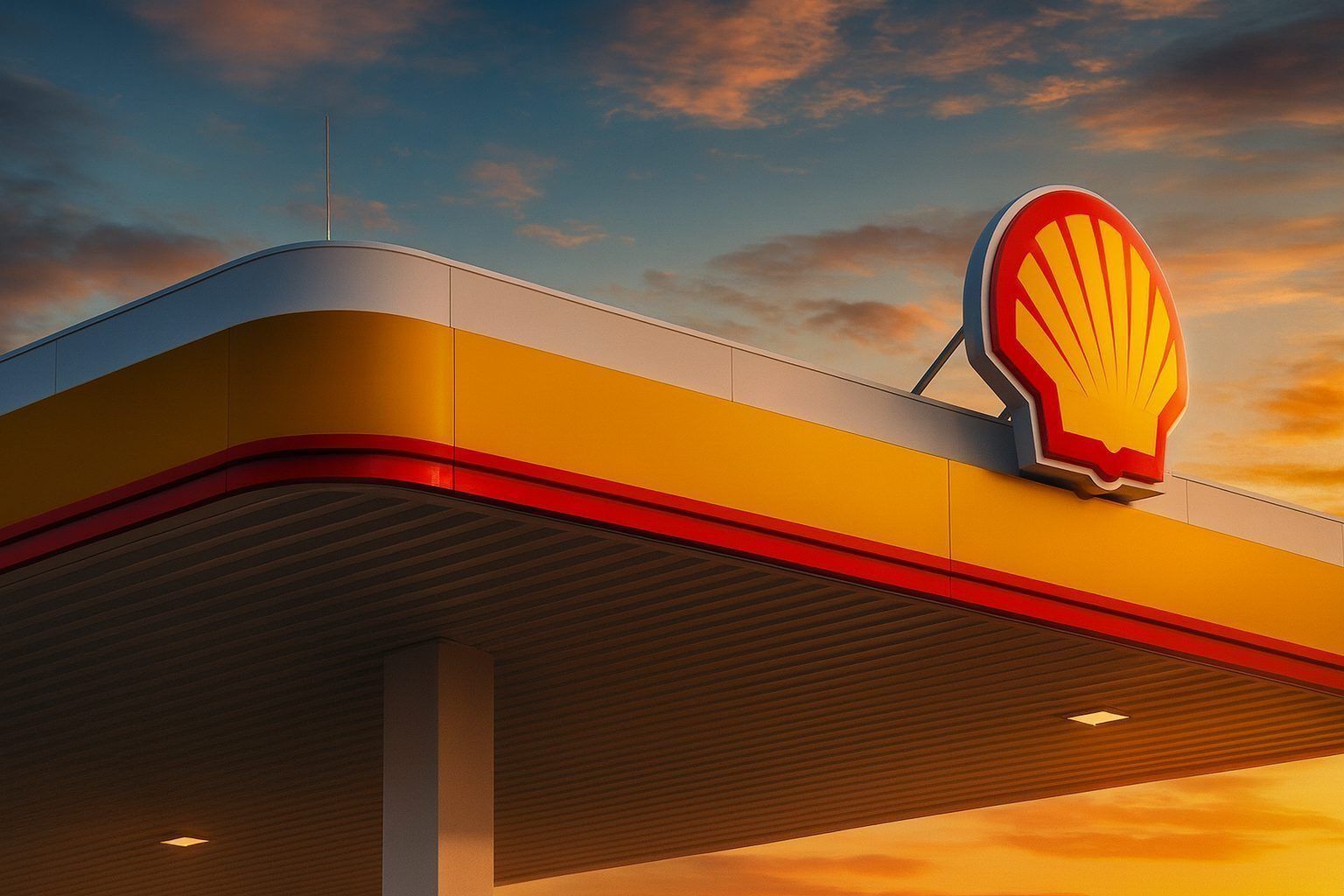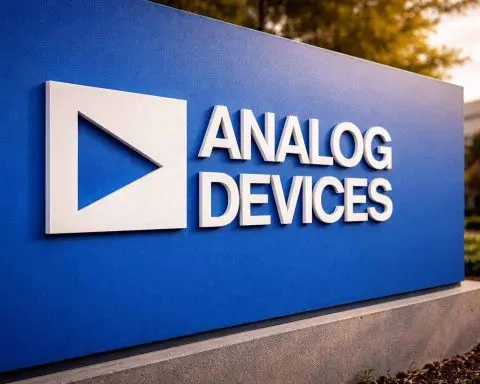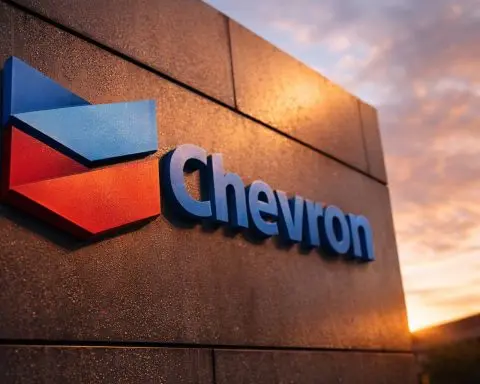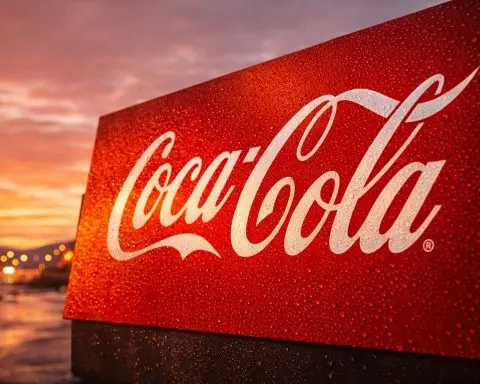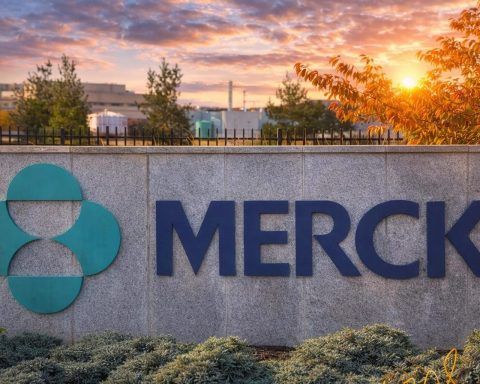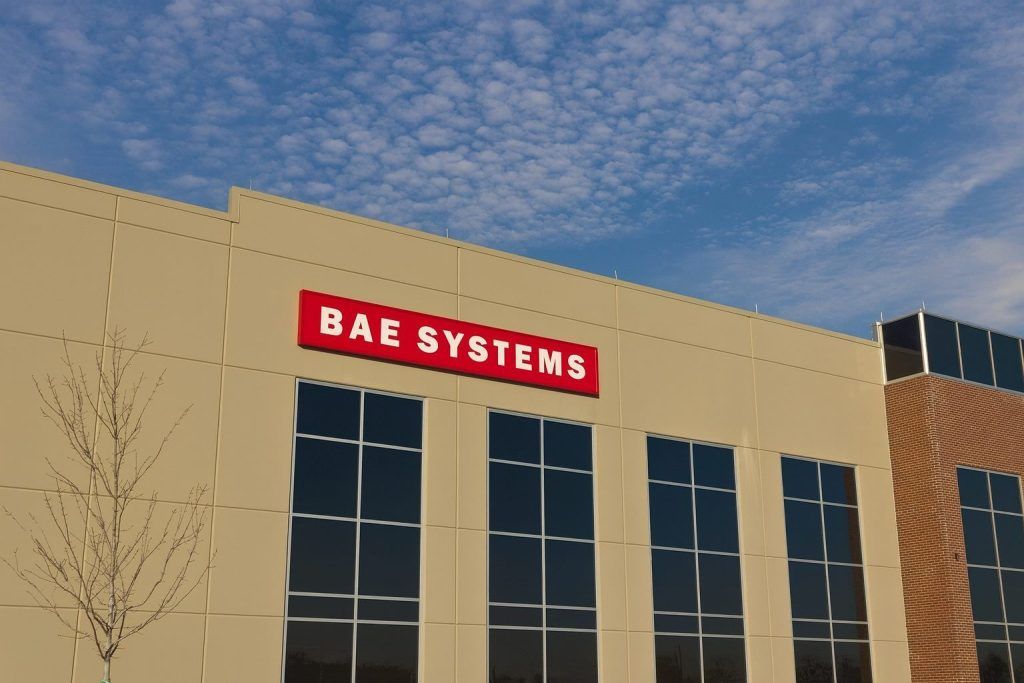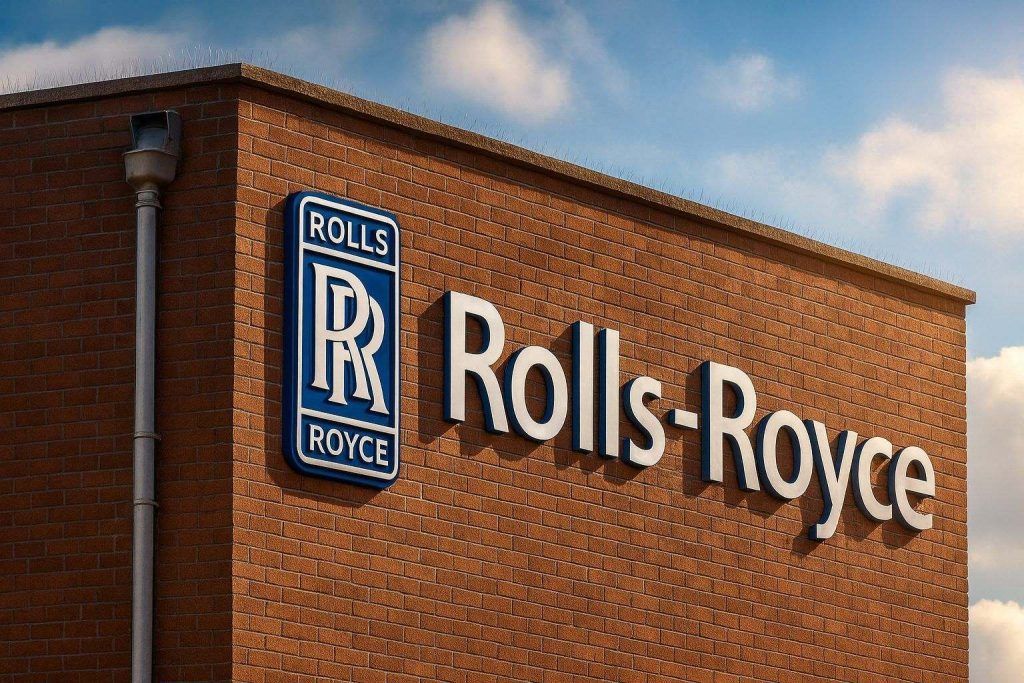Shell Plc (SHEL) is in the spotlight today as UBS cuts its rating on valuation grounds, new details emerge in a high‑stakes LNG dispute, and the company deepens both its shareholder‑return program and its energy‑transition partnerships with Ferrari and Nigeria’s Bonga field.
Shell share price on 26 November 2025
- London (LON:SHEL) – Shell’s primary London listing traded in a narrow range and closed around 2,766p, after moving between roughly 2,749p and 2,770p on Wednesday, with under 1 million shares changing hands. Shareprices
- Euronext Amsterdam (SHELL) – In Amsterdam, Shell finished the session at about €31.37, down roughly 0.6% on the day, continuing a modest pullback from recent highs. Investing
- New York ADR (NYSE:SHEL) – In the U.S., Shell’s ADR last closed at $72.80 on Tuesday, 25 November, leaving the stock about 10–15% above its 52‑week low but below recent peaks near $77. StockAnalysis
UBS notes that Shell shares are up about 12% in 2025 in local currency, helped by a string of cash‑flow beats and disciplined costs – a key backdrop for today’s rating change. Investing.com UK
UBS cuts Shell to ‘Neutral’ as valuation stretches
The biggest broker headline today comes from UBS, which downgraded Shell PLC (LON:SHEL) from “Buy” to “Neutral” and trimmed its price target from 3,200p to 3,000p. Investing.com UK
Key points from the UBS note:
- Shell has delivered seven quarters of strong cash flow, helped by lower‑than‑expected operating costs and robust trading performance, pushing the share price up and compressing the valuation. Investing.com UK
- UBS still sees Shell as having “an important role to play in any energy portfolio” thanks to its strong balance sheet and hard‑to‑replicate positions in Mobility and Integrated Gas. Investing.com UK
- However, after the recent rally, the bank argues Shell “no longer screens as cheap on multiples”, especially given medium‑term challenges around resource replenishment and limited top‑line growth. Investing.com UK
In short, UBS hasn’t turned bearish on Shell’s fundamentals, but it does believe the easy valuation upside has been captured, with future returns more dependent on execution, commodity prices and the energy transition.
Ferrari deal: 10‑year renewable power partnership through 2034
On the energy‑transition front, Shell has just signed a high‑profile green power deal with Ferrari, drawing wide coverage from Reuters and ESG‑focused outlets. Reuters
Headline details:
- Shell will supply around 650 gigawatt hours (GWh) of renewable electricity over 10 years, under a long‑term power purchase agreement (PPA) running until the end of 2034. Reuters
- The power will come from a Shell‑developed plant, providing nearly half of the energy demand at Ferrari’s Maranello complex, which houses its main factory and headquarters. ESG Post
- Shell Energy Italia will also supply additional electricity and renewable energy certificates so Ferrari can fully cover its Italian operations with green power. Reuters
- The deal supports Ferrari’s target of a 90% reduction in Scope 1 and 2 emissions by 2030, while reinforcing Shell’s long‑standing motorsport partnership with Scuderia Ferrari. Reuters
For Shell investors, the Ferrari PPA is another data point showing how the company is monetising renewables and power‑marketing capabilities, not just oil and gas, while using marquee brands to showcase its transition strategy.
LNG tensions: Venture Global accuses Shell of a “three‑year campaign”
In a sign that Shell’s LNG business remains legally and reputationally complex, U.S. LNG producer Venture Global has accused Shell of waging a “three‑year campaign” to damage its business, according to a staff note first reported by the Financial Times and confirmed by Reuters today. Reuters
What’s happening:
- Venture Global tells employees that Shell has appealed a unanimous arbitration ruling in a long‑running dispute over LNG supply contracts, calling the move “misguided”. Reuters
- During the 2022 energy crisis, Venture Global sold LNG cargoes on the spot market while some long‑term customers, including Shell and BP, claimed contractual deliveries were not honoured; this sparked multiple arbitrations. Reuters
- Shell recently launched a challenge in a New York state court to overturn an arbitration loss and was ordered to pay Venture Global’s legal fees in one case. Reuters
- Venture Global’s founders say Shell’s latest legal move should concern Shell’s board and shareholders, framing it as part of a longer campaign to hurt the company. Reuters
The dispute does not threaten Shell’s balance sheet in the way a mega‑acquisition might, but it underscores:
- ongoing contractual risk in LNG,
- the political sensitivity of gas supply since 2022, and
- the importance of reputation and trust in long‑term LNG partnerships.
$3.5 billion buyback and fresh share repurchases
Despite legal noise and a valuation debate, Shell is doubling down on shareholder returns.
New $3.5 billion programme
A detailed MarketMinute piece, syndicated across financial news sites, highlights Shell’s new $3.5 billion share buy‑back programme: FinancialContent
- Announced on 30 October 2025 and profiled on 25 November, the programme is scheduled to run until 30 January 2026, just before Q4 2025 results. FinancialContent
- It targets up to 500 million ordinary shares, split $1.75 billion on London and $1.75 billion on Dutch exchanges, with all shares acquired to be cancelled. FinancialContent
- The aim is to shrink the share count, raise earnings per share (EPS), and underline Shell management’s confidence in its cash‑generation capacity. FinancialContent
This comes on top of earlier programmes in 2024 and early 2025, reinforcing Shell’s reputation as a buyback‑heavy, income‑oriented energy major. FinancialContent
Latest “Transaction in Own Shares”
A fresh transaction notice dated 25 November 2025 shows the new buyback is already active at scale: Stock Titan
- Shell repurchased 1,498,482 shares in total on 25 November, split between:
- 748,395 shares on the London Stock Exchange at a volume‑weighted average price of £27.7619, and
- 750,087 shares on Euronext Amsterdam at an average of €31.7079, all for cancellation. Stock Titan
- Trades are conducted by Merrill Lynch International under irrevocable, non‑discretionary contracts, running through 30 January 2026. Stock Titan
UBS has flagged that buybacks have represented a large share of Shell’s total shareholder distributions in 2025, and now expects this to take more of a back seat next year – part of the rationale for its downgrade. Seeking Alpha
Upstream growth: Shell lifts stake in Nigeria’s deep‑water Bonga field
On the production side, Shell is quietly reinforcing its core upstream positions:
- Shell Nigeria Exploration and Production Company (SNEPCo) has completed a previously announced deal to raise its stake in Nigeria’s OML 118 production sharing contract from 55% to 65%, giving Shell a larger share of the Bonga deep‑water field. Shell
- Nigerian Agip Exploration (an Eni subsidiary) exercised pre‑emption rights, trimming Shell’s originally planned 12.5% stake increase down to 10%. The new ownership split for OML 118 is SNEPCo 65% (operator), Esso 20%, Agip 15%, all on behalf of NNPC. Shell
Shell describes the move as:
- a “significant investment in Nigeria deepwater”,
- aligned with its strategy to focus on competitive, existing assets, and
- a contributor to its goal of growing combined Integrated Gas and Upstream production by ~1% per year to 2030, while sustaining around 1.4 million barrels per day of liquids production. Shell
For investors, this signals that Shell is still allocating sizeable capital to advantaged conventional oil, even as it invests in renewables and power.
Indonesia: 100,000‑barrel fuel purchase from Pertamina to ease shortages
In Southeast Asia, Shell is dealing with a very different issue: fuel shortages at private gas stations in Indonesia.
- Indonesia’s deputy energy minister confirmed that Shell Indonesia has agreed to buy 100,000 barrels of petrol from state‑owned Pertamina, after private import quotas were capped and some stations ran dry. The Business Times
- The cargo is scheduled to arrive in late November, with Shell set to distribute it immediately to its network, helping to cover stock needs through year‑end. Metrotvnews
- Other private retailers, including BP‑AKR and Vivo, have signed similar 100,000‑barrel deals with Pertamina. The Business Times
The episode highlights the regulatory and supply‑chain constraints Shell faces in some downstream markets, and how closely its retail performance can be tied to government‑managed quota systems.
Digital & retail: Shell App integrates Budi95 fuel subsidy in Malaysia
Staying in Asia, Shell is also pushing digital convenience in Malaysia:
- The Shell App is now integrated with the government’s Budi Madani RON95 (Budi95) fuel subsidy programme, letting eligible motorists access subsidised petrol at RM1.99 per litre via the app. iMotorbike News
- Customers complete a one‑time e‑KYC verification through Touch ’n Go (TNG) eWallet, then tap a dedicated Budi95 button in the app to refuel at the subsidised rate at Shell stations. iMotorbike News
- Shell Malaysia is marking the launch with a RM2 million voucher campaign: users who bind the app and complete a minimum RM10 Budi95 transaction get a RM5 Shell voucher, with an additional RM5 for new app users. Carsifu
- Shell Mobility & Convenience Malaysia GM Seow Lee Ming says the update is about making the fuelling journey “simpler and more rewarding”, combining secure payments, personal offers and subsidy access in one place. Carsifu
This is a small but telling example of Shell’s mobility strategy, where app‑based payments, loyalty and local subsidy integration are increasingly central to its downstream brand.
Sentiment check: political trade, analyst consensus and AI leadership
U.S. lawmaker trims a small SHEL position
MarketBeat today flagged that U.S. Representative Lisa C. McClain (R‑Michigan) disclosed selling a modest amount of Shell ADRs: MarketBeat
- The filing shows a sale of between $1,001 and $15,000 of NYSE:SHEL on 14 October, reported on 21 November and highlighted today. MarketBeat
- MarketBeat notes Shell’s market cap around $210 billion, dividend yield near 3.9%, and a price‑to‑earnings ratio in the mid‑teens, emphasising that analyst sentiment remains broadly positive. MarketBeat
In context, this is tiny relative to Shell’s size and looks more like routine personal portfolio management than a directional signal on the stock.
Consensus still leans “Moderate Buy”
Across Wall Street, data compiled by MarketBeat and others show: MarketBeat
- A “Moderate Buy” consensus rating on SHEL.
- An average 12‑month price target around $79.9, implying mid‑single‑digit to low double‑digit upside versus recent U.S. prices.
- A spread of opinions from Strong Buy to Hold, reflecting differing views on oil prices, the pace of buybacks and the energy transition.
UBS’ downgrade today adds to the Hold‑camp, but it’s far from a wholesale bearish turn.
Barclays puts Shell in the AI “Ready” tier
A less obvious but potentially important angle: Barclays published a note today on “Agentic AI” as an $80 billion productivity opportunity for big energy firms by 2030, and puts Shell firmly in the leadership bucket. TradingView
- Barclays estimates around $80 billion of potential productivity gains for the sector, $65 billion of which could come from upstream. TradingView
- It groups companies by AI readiness and lists Shell, Aramco, ADNOC, Exxon, TotalEnergies and BP in the top “Ready” category, citing long‑running digitalisation and data investments. TradingView
For Shell, this reinforces the narrative that operational efficiency, trading and project optimisation could be further enhanced through AI – an important offset to UBS’ worries about resource replacement and growth constraints.
What today’s newsflow means for Shell Plc (SHEL)
Putting it all together, 26 November 2025 is a dense news day for Shell:
- Valuation pressure: UBS’ downgrade crystallises a widely held view that Shell’s 2025 rerating has gone a long way, and that future upside may depend on execution, commodity prices and balance between buybacks and reinvestment. Investing.com UK
- Capital returns remain aggressive: The $3.5 billion buyback and ongoing daily repurchases support EPS and provide a floor under the share price, but some investors will question how sustainable that pace is if growth projects and the transition need more capital. FinancialContent
- Strategic positioning stays mixed but deliberate:
- Upstream: a larger Bonga stake and Nigerian growth plans show continued appetite for conventional deep‑water oil. Shell
- Transition: the Ferrari renewable PPA and hydrogen‑related power deals elsewhere in Europe underscore Shell’s build‑out in low‑carbon power and offtake. ESG Post
- Downstream & retail: the Pertamina fuel purchase and Budi95 app integration reveal the day‑to‑day operational and regulatory realities in key growth markets. The Business Times
- Risk and opportunity: The Venture Global LNG dispute and public accusations show that legal and reputational risks remain embedded in Shell’s LNG portfolio, even as it’s seen as an AI and digital leader by Barclays. Reuters
For current and prospective investors, the picture today is not one of a company in crisis, but of a mature energy major:
- using buybacks and dividends to keep shareholders engaged,
- leaning on advantaged legacy assets like Bonga and LNG,
- expanding renewables and power trading through deals like Ferrari, and
- navigating legal, regulatory and valuation headwinds that come with that scale.
Note: This article is for information and news purposes only and does not constitute financial advice, investment recommendation, or an offer to buy or sell any security. Always do your own research or consult a qualified financial adviser before making investment decisions.
